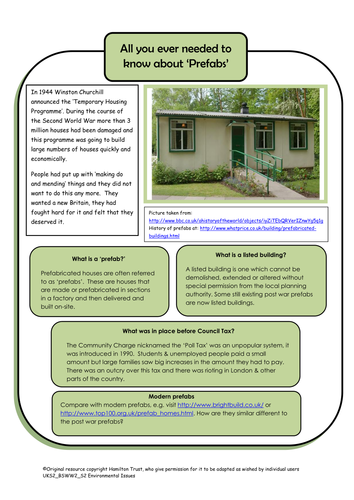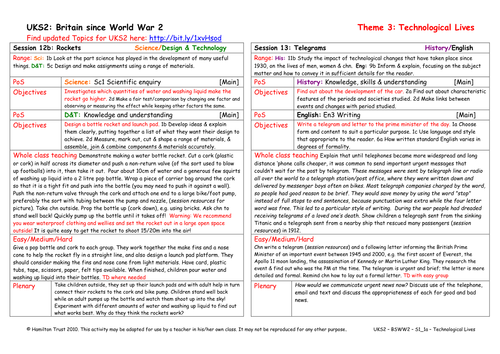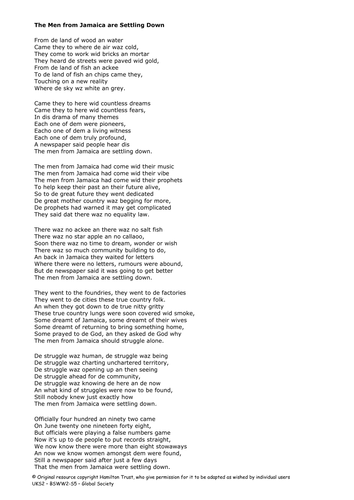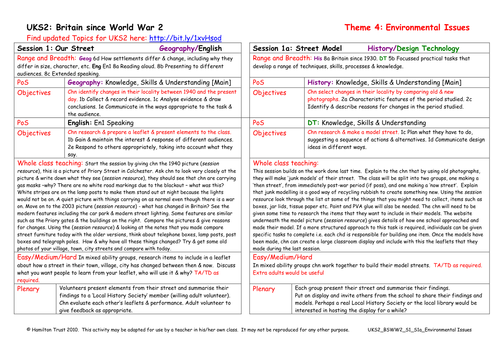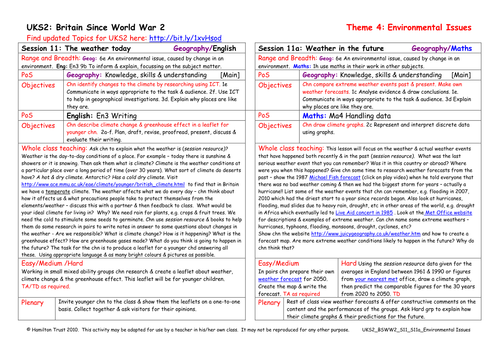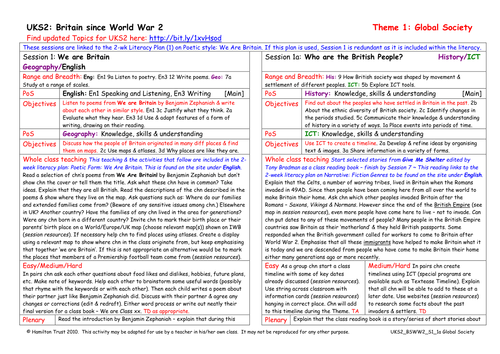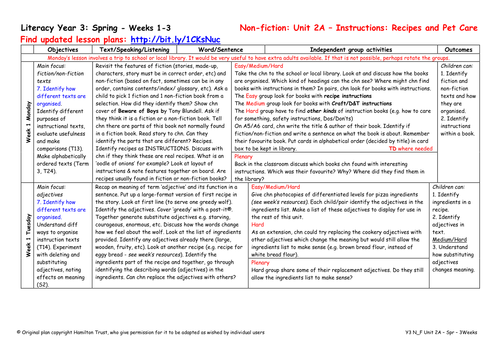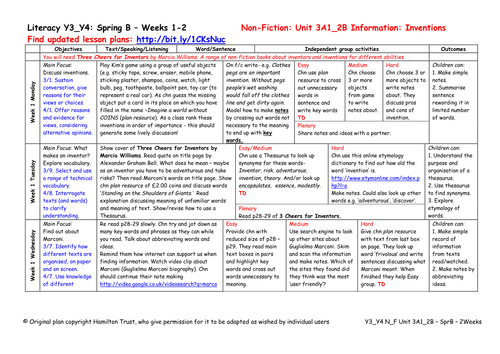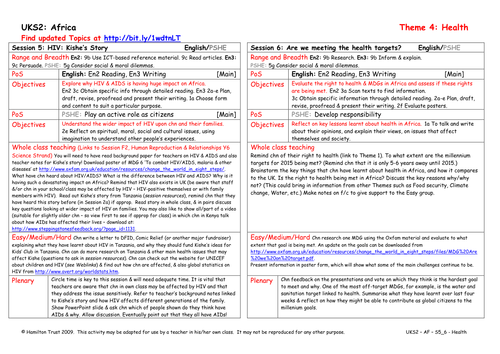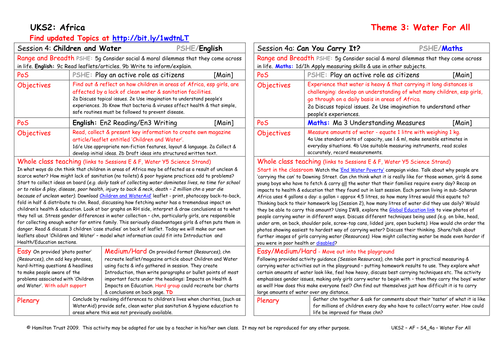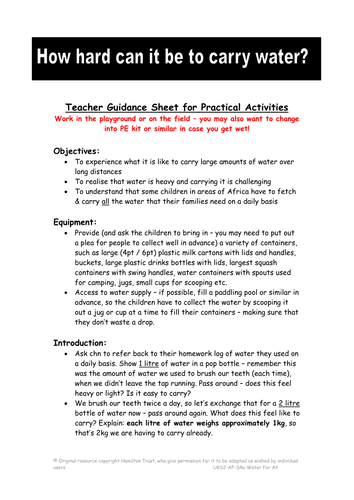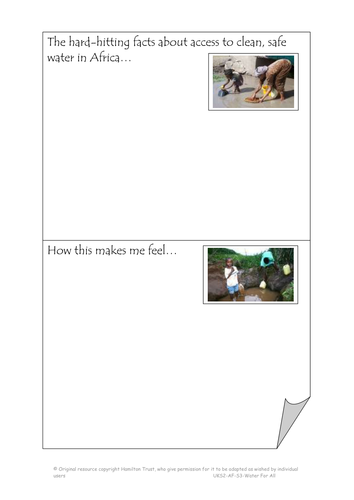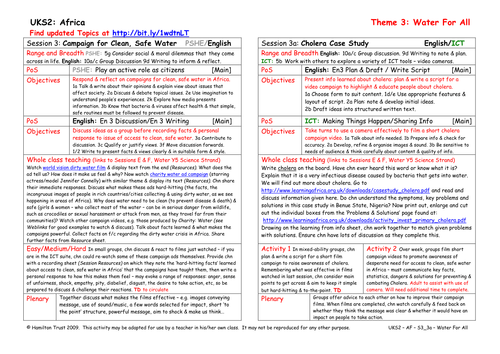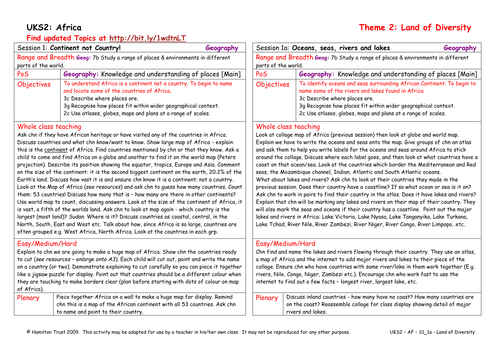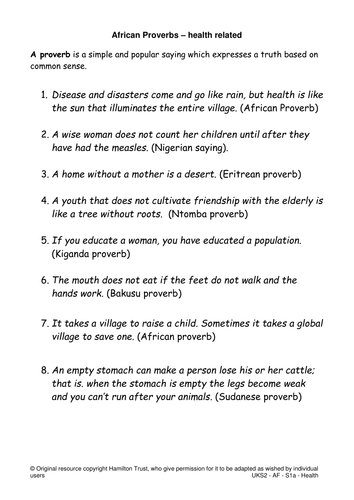
397Uploads
10041k+Views
11644k+Downloads
All resources

Prefabs
Children understand that millions of houses were destroyed during WW2 and they needed to be replaced. Houses were designed that were pre-fabricated. They were quick to build; thousands were put up in the 1940s/1950s. Children choose key info needed to sell a prefab.

Rockets
Demonstrate a water rocket to children, they then make their own, adding fins, nose cone and design a launch pad.

Notting Hill Carnival
Read Benjamin Zephaniah’s poem The Men from Jamaica are Settling Down. Discuss the treatment that migrants from the Caribbean received from some British people. Explain how this lead to riots and the first Notting Hill Carnival. Children design carnival costume.

Our Street
Children look at streets around the school, houses, shops and street furniture. Compare today with the 1940s. Use old photos of home town/village or city as resources. Children produce a leaflet showing how their street has changed between then and now.

Weather In The Future
Discuss extreme weather events from present and past. Using data they have been given about England’s weather over the past 30 years, some children draw a climate graph and predict what will happen in the future. Other children create a weather forecast for 2050.

Washing Machines and Spin Driers
Children look at labour saving household inventions, order picture of machines across the decades and then carry out an experiment to find out how spin driers work.

We Are Britain KS2
Read some poems from We are Britain by Benjamin Zephaniah and ask what these children have in common. Discover where in the world children in the class came from originally – locally, elsewhere in Britain, another country? Write poetry about each other in BZ style.

Yr 1 Poetry Unit 3B Weather poems
A range of poetry structures is identified through examples of poetry written on the theme of weather. Children consider the effect of patterned language, imagery and rhyme. They write and perform their own weather poems.

Yr 3 NF Unit 2A Instructions : Recipes and Pet Care
Use recipes in Beware of Boys to identify differences between fiction and non-fiction text and to stimulate recipe writing.
Make pop-up cards without pics and study recipes without ingredients to identify features. Then write instructions for pet care as a poem!

Yr 3/4 NF Unit 3A1-2B Information: Inventions
Explore how to find and present information about inventors and inventions. Give a talk as part of a group. Watch and listen to inventors explaining their ideas online. Make notes and contribute to a creative class book about inventors.

Building a Sporting Future for Africa
In this session children take a look at successful Olympic bids from London and Rio before starting to put together their own 2020 bid on behalf of one of the World Cup host cities.

Are we meeting the health targets?
Reflect back on ‘Right to health and MDGs. Investigate how far children think their rights and the MDGs related to health are being met. Present a MDG in an interesting way.
Suitable for years 5 and 6.

Apartheid
Examine the system of apartheid through a class role play activity. Introduce Nelson Mandela and discover what children already know about him. Children reflect on their own feelings during the role play. Start reading Journey to Jo’burg. Suitable for years 5 and 6.

Children and Water
Using an informative and clear leaflet downloaded from WaterAid, children read and discuss how children in parts of Africa are affected by lack of clean water and sanitation. Facts are collected before creating own posters and leaflets entitled ‘Children and Water’.
Suitable for years 5 and 6.

Can You Carry It?
How hard can it be to carry water? Children find out the facts and discuss images of different ways of carrying water before trying themselves. Through activities on the playground children experience that water is heavy and challenging to carry over distances.
Suitable for years 5 and 6.

Campaign for Clean, Safe Water
Watch campaign films that educate people about the dirty water crisis in Africa. Children consider the hard-hitting facts learned and record how this makes them feel. Discuss what makes these films effective, in preparation for planning own films in the next session.
Suitable for years 5 and 6.

Daily Life
Children describe their daily lives. They think about the things they do regularly each day, each week and at weekends. Look at the features of diaries and then children keep a diary for a week to share with their link school friends. Compare with lives of other children.
Suitable for years 5 and 6.

Cholera Case Study
Through following a case study in Benue State, Nigeria, children learn about cholera. They plan and write a script for a video campaign to highlight and educate people about cholera, finally taking turns to use a camera to film their short cholera campaign videos.
Suitable for years 5 and 6.

Continent Not Country!
Children look closely at the continent of Africa. They recognise that it is a huge and diverse land with many different countries and widely varying landscapes and climates. They take 1/2 countries each and create a huge collage-map of Africa.
Suitable for years 5 and 6.

Healthy Proverbs
Discuss African proverbs about health and their meanings. Children design their own posters or prepare a drama /freeze frame to show meaning of healthy proverb. Compare to healthy proverbs/sayings in the UK?
Suitable for years 5 and 6.

